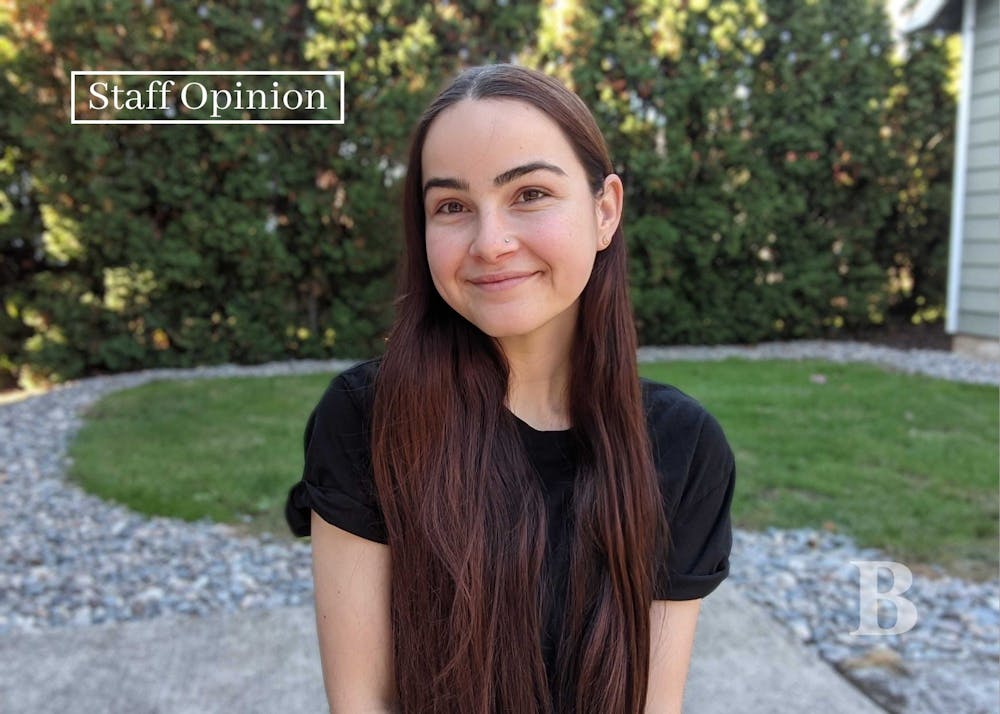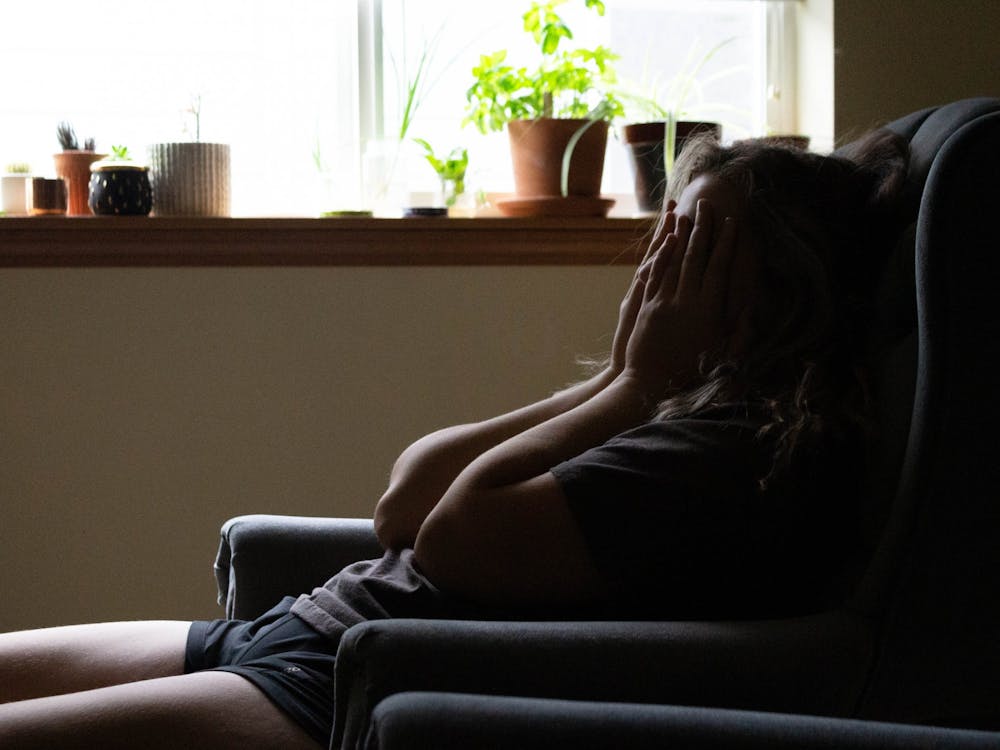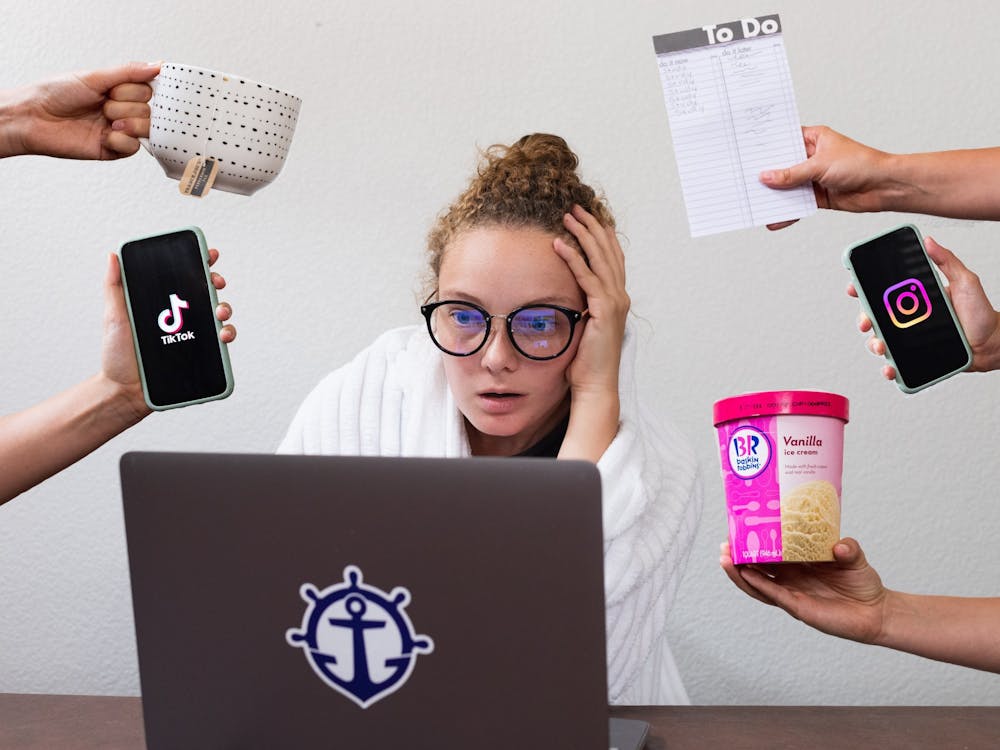I, as well as many others, downloaded TikTok to cure some quarantine boredom and ended up spending way too much of my free time on the app. But as I mindlessly scroll through my For You Page, I see post after post in which people joke about the pains of online school, share their stories regarding mental illness, or offer advice for dealing with emotional and academic stress. Mental health seems to be a common thread on this app. And this is a relatively new phenomenon. Social media used to be a place to post your most edited photos depicting only the best parts of your life, but TikTok is filled with a kind of honesty regarding mental health that I haven’t seen online before.
And it’s not just TikTokers who are feeling more uneasy since lockdown began.
With the newfound stress of online school, a lack of in-person connection with our friends and fear from the ever-present pandemic that attacks both our physical and emotional wellbeing, it is more important than ever to take care of our mental health. This could mean seeing a therapist. As daunting or unfamiliar a task this may seem to be, I assure you, it can be a simple and incredibly productive thing to do.
Over the past couple years, I have seen an increasing amount of information about paying attention to our mental well-being and asking for help when we need it. Resources ranging from clubs on college campuses across the country — like UP’s Active Minds — to a plethora of self-care Instagram blogs have popped up in the past several years with the aim of de-stigmatizing therapy and promoting the idea of taking care of your whole self. Even a multitude of celebrities are speaking out about their own experiences with mental health issues in an attempt to shed light upon this subject and normalize conversations about personal struggles.
Here at UP, every class is required to include mental health statements on the syllabus. I have noticed that since classes transferred online, professors seem to be more willing to adjust due dates and grant extensions for students, understanding that mental health can interrupt school work.
Evidently, mental health is an increasingly popular discussion.
And I am glad to see more people open up about their struggles, more resources gaining national attention, and more research being done about how important mental health truly is. But there is still a stigma surrounding getting adequate help. Mental health is almost a buzzword more than an actual conversation that we need to have with ourselves and our society.
An average of 39% of college students face a significant mental health issue, many of which go undiagnosed and untreated. These are the problems that go beyond being stressed about a test or feeling tired of logging onto Zoom meeting after Zoom meeting. Students can carry significant problems that suck up incredible time and energy without knowing about them.
Taking care of your mental health is often more complicated than skipping class to have a spa day or spending this week’s paycheck on superficial retail therapy. I’m not saying these methods of self care are not important (just look at my bank statement for proof), but sometimes we need help beyond chatting with a friend or going for a long walk.
I urge you to really check in with your mental health. Ask yourself if your problems can be solved with a face mask or a visit to a therapist, and don’t be afraid if it’s the latter. Self care can heal academic stress and short term problems, but many of us need to turn to other coping mechanisms to heal.
And especially in a time of global stress, with COVID-19 changing the way we live our lives, going to therapy might be the best option you have.
It is important to de-stigmatize the idea of seeking professional help for our problems. In the midst of a global pandemic, people are more stressed, anxious, or depressed than ever, and college students are already used to being stressed. But there comes a point when the pressure to complete assignments and get good grades eats away at your wellbeing a little too much. It has become a normal aspect of the college experience to take more stress than we can handle, but students shouldn’t be nonchalantly writing off their struggles when they could really benefit from talking through their problems with a counselor.
If it has become mainstream for schools to include mental health statements or for people to share Instagram stories of self care tips, why is there still a stigma around receiving therapy? Finding a therapist isn’t a sign of weakness, it’s just a way of holistically taking care of your body and health.
So what can you do?
For one, educate yourself on mental illness and unlearn the stigma claiming that asking for help is weak or an action only for severe mental illnesses.
Look for warning signs of a larger issue in your own life. As a multitude of self-help Instagram accounts remind us, check in with yourself and be honest with where you are in terms of mental health. It’s ok to not be ok, but you should recognize when your stress or sadness spans beyond the realm of ‘normal’ and should be addressed in a more professional setting.
Lastly, don’t be afraid to look for professional help. While a friend is a great shoulder to lean on when you need it, therapists are there to talk about what’s on your mind and can offer clinical aid. You don’t need to be diagnosed with a mental illness to justify talking to someone about your feelings. UP’s Health and Counseling Center offers free sessions for students and can also direct you to affordable therapists in your area. Schedule an appointment if you need to talk or even if you think therapy might be a good option for you and want to test the waters of seeing a counselor.
Not everyone is struggling with a mental illness, but everyone has mental health. With tensions higher than ever across the globe, it is increasingly vital to pay close attention to this aspect of our well-being. So take a mental health day. Put on a face mask, buy something useless you’ve had your eye on, or go on a long walk without a destination. But don’t hesitate to reach out for help if you need it.
Emma Sells is a photographer for The Beacon. She can be reached at sells23@up.edu.
Have something to say about this? We are dedicated to publishing a variety of viewpoints and we’d like to hear from you. Voice your opinion in The Beacon.








